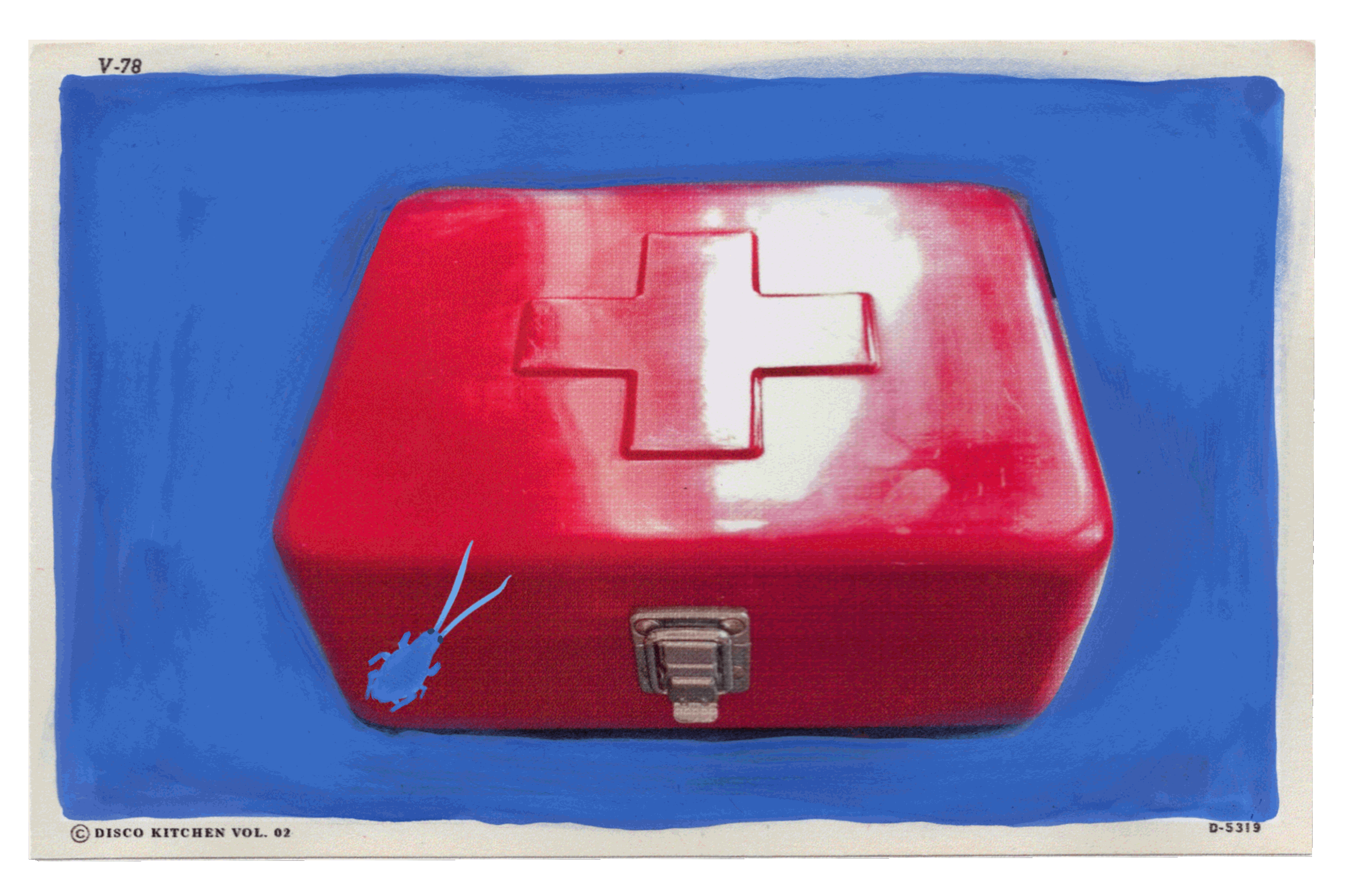MUSTARD GAS AND BENADRYL
by Noah Lane Browne
A cockroach scutters across the floor of the chemo ward. Surprising, in this, the most sterile of environs. We consider flagging down a nurse but say nothing; they are busy caring for patients and shouldn’t be bothered by an insect, even a gross one. Plus maybe it’s a good sign, maybe this place is for survivors?
This is your first session of eight. Two summers ago we were married, the future a smooth highway stretching before us to an infinite horizon. This summer we will spend at the hospital across town. Our horizon is September.
We packed a bag the night before. It is filled with thoughtful gifts from thoughtful friends: granola bars, extra warm socks, trashy magazines to pass the time. While waiting for the nurse you catch up on your celebrities, recounting the latest gossip and adding color commentary. But I am too anxious to hear about Bennifer or Brangelina or Bennifer 2 or whatever. Instead I google—always, always the wrong impulse—and learn that chemotherapy was discovered by studying the effects of mustard gas. The same mustard gas first used in World War I to horrifying effect, the same mustard gas that asshole Assad used to kill innocent people in Syria. Basically, they are going to inject you with a chemical weapon.
I sigh or frown or both. You ask what’s wrong. Nothing, I say, managing what I hope is a half-convincing smile. My fears are not what you need.
The nurse arrives, fully kitted out. A canary-yellow isolation gown over her scrubs, surgical gloves, safety glasses, face shield, surgical mask—layers of medical gear meant to protect her body from the poison that she is going to shoot into yours. You look away, wincing as the needle slides in. She is good: she finds your vein on the first try. Still, a small tear, of pain or fear or both, pools in the corner of your left eye.
You will need to sit here for hours, the IV slowing sucking the toxin from a bag above your shoulder and pushing it through your body. The nurse smiles, or what looks like a smile, under her face mask and shield. She will be back soon to check on you, she says. Just try to relax, she says. You lean back and close your eyes, perhaps to go to another place, a not-now, a not-here. Smart. You have always been good at corralling the wild horses of your mind. But I am at the mercy of mine, and I glance at my phone. Maybe I should fact-check myself? Mustard gas, really?
When I look up, something is wrong. In five seconds your complexion, fair and even, has turned deep crimson and blotched. I ask if you are OK and you look at me but don’t respond. There is an emergency button in here somewhere, the nurse showed it to us, butwherethefuckisitthatstupidfuckinglittlething? Frantically, I throw aside pillows and clothes and blankets and glossy copies of People. I panic; I rampage. Then I find it, my hand shaking as I press the red button. An alarm shrieks. Three nurses rush in, one of them carrying a big red box with a white cross on it. I can’t make out their expressions under their masks but their eyes, focused and intent, betray concern. Words are exchanged quickly: heart rate too high, breathing too shallow. They dart around you in a coordinated dance. One stops the chemo, another grabs Benadryl from the big red box, a third monitors your vitals and encourages you to breathe. They push in the Benadryl. Then we look at you, waiting. Silence, stillness.
In less than a minute the crimson fades, your heart slows, your breath returns. Just an allergic reaction, they say. It’s pretty common the first time, they say. I grab your hand, squeeze it.
Ten minutes later the nurse in the canary-yellow gown returns to reload the chemo/mustard gas/chemical weapon. She asks if you are ready to start again. You look at her and nod, knowing this is the only way to September.
Noah Lane Browne writes about family, memory, and survival. You can find his work in Unbroken, Chicago Story Press, and Qu, among others. He lives in Washington DC with his badass wife and intemperate cat.


